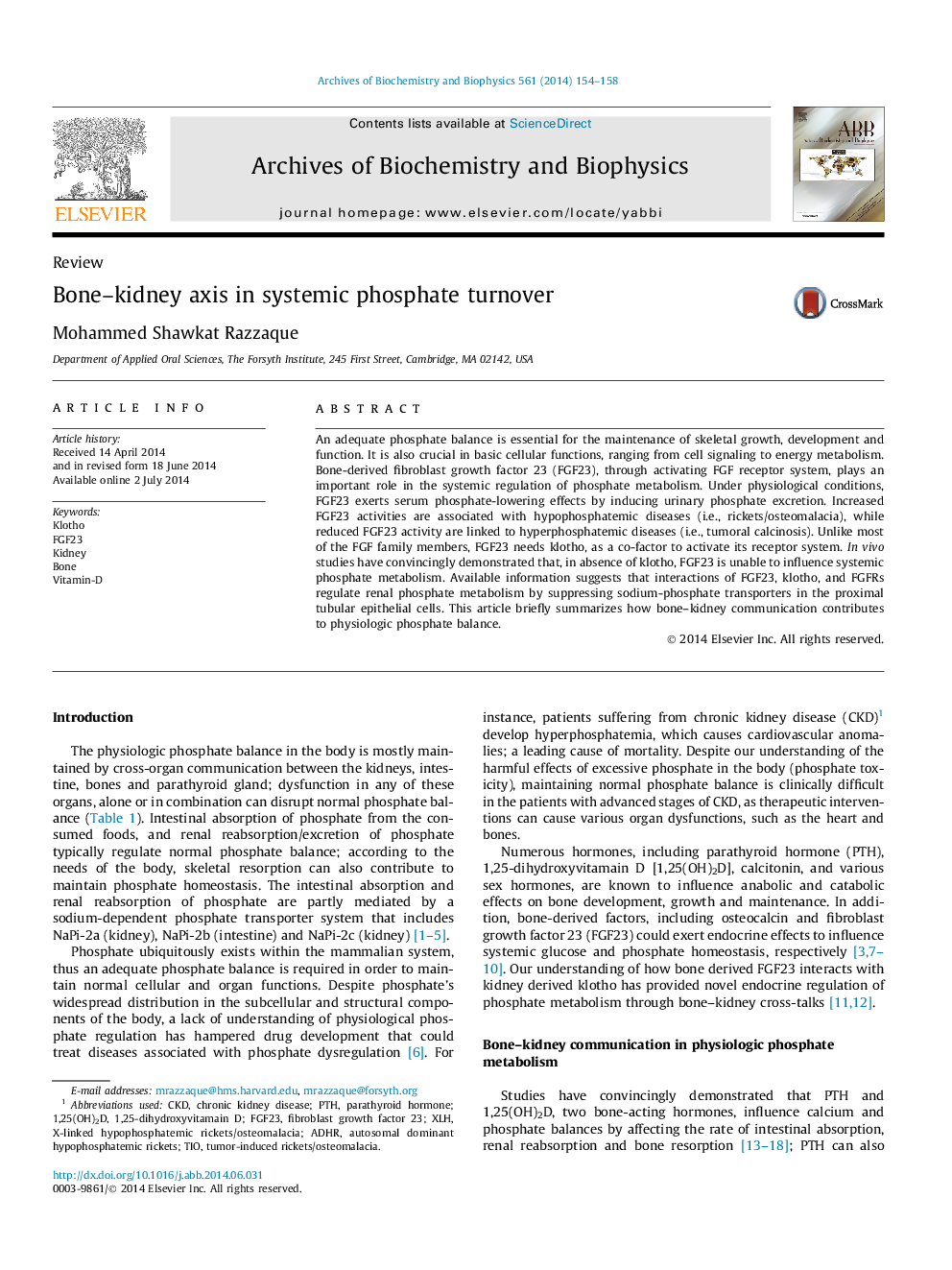| Article ID | Journal | Published Year | Pages | File Type |
|---|---|---|---|---|
| 1925115 | Archives of Biochemistry and Biophysics | 2014 | 5 Pages |
•Bone-derived FGF23 plays an important role in systemic phosphate turnover.•FGF23, in presence of klotho, activates FGF receptors to affect phosphate levels.•FGF23 and vitamin D form an endocrine feedback loop to control mineral metabolism.•Phosphate imbalance exacerbates aging, ectopic calcification and bone defects.
An adequate phosphate balance is essential for the maintenance of skeletal growth, development and function. It is also crucial in basic cellular functions, ranging from cell signaling to energy metabolism. Bone-derived fibroblast growth factor 23 (FGF23), through activating FGF receptor system, plays an important role in the systemic regulation of phosphate metabolism. Under physiological conditions, FGF23 exerts serum phosphate-lowering effects by inducing urinary phosphate excretion. Increased FGF23 activities are associated with hypophosphatemic diseases (i.e., rickets/osteomalacia), while reduced FGF23 activity are linked to hyperphosphatemic diseases (i.e., tumoral calcinosis). Unlike most of the FGF family members, FGF23 needs klotho, as a co-factor to activate its receptor system. In vivo studies have convincingly demonstrated that, in absence of klotho, FGF23 is unable to influence systemic phosphate metabolism. Available information suggests that interactions of FGF23, klotho, and FGFRs regulate renal phosphate metabolism by suppressing sodium-phosphate transporters in the proximal tubular epithelial cells. This article briefly summarizes how bone–kidney communication contributes to physiologic phosphate balance.
